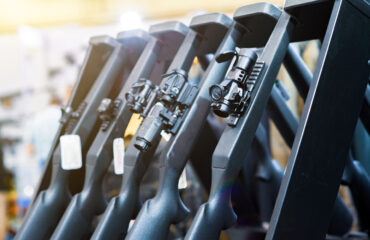Poaching in Africa has reached a crisis level, with an increasing number of elephants being poached and the risk of their extinction becoming more imminent. It is estimated that close to 30,000 elephants are poached every year in Africa. Without comprehensive and coordinated action, elephants could soon face extinction. In this study, poaching is definedPoaching
Welcome to the 3-year RECSA Report for the period FY2018 to FY2021. As the Executive Secretary at the RECSA Secretariat, I have had the great pleasure of witnessing RECSA’s continued coordination in the implementation of Weapons and Ammunitions Management (WAM) in its Member States. Our vision at RECSA is to achieve a safe and secureCONSOLIDATED RECSA REPORT 2018-2021
Since its independence from Belgium in 1960, the Democratic Republic of Congo (DRC) has experienced armed conflicts and mutinies staged by rebels and pro-government forces, leading to fragility situations manifested in several instances of forceful government takeovers. In the Fragile States Index of 2015, the DRC was ranked 173rd out of 178 countries by theDRC Fragility
Cattle rustling in the Horn and East African regions has existed for many centuries. Traditionally, it was sanctioned by elders and played as a game aimed at replenishing lost herds and for cultural practices, including dowry payment and as proof of one’s manhood and bravery. However, in the last 30 years, the practice has changedCattle Rustling
The proliferation of illicit SALW in the Central African Republic (CAR) has for many years undermined possibilities for state stability, and contributed to continual political crisis in the fragile state. Since its independence from France in 1960, CAR has experienced violent conflicts. The country was recently ranked the third most fragile State in the 2015CAR Fragility
Fragility situations in Burundi have been in existence for many years owing to the protracted conflicts and the proliferation of illicit Small Arms and Light Weapons (SALW). Since Independence in 1960, Burundi has experienced intermittent conflicts which have left a trail of death, destruction, and displacements. In its 2015 ranking, the Fund for Peace rankedBurundi Fragility
The Regional Centre on Small Arms in the Great Lakes Region, Horn of Africa and Bordering States (RECSA) is an intergovernmental organization established in June 2005 to coordinate action against the proliferation of Small Arms and Light Weapons (SALW). The organization’s primary objective is to implement the Nairobi Declaration, which addresses the issue of illicitArmed Crime
Physical Security and Stockpile Management (PSSM) best practices are identified in the Nairobi Protocol and other SALW regional and international instruments as one of the priority areas in the fight against illicit SALW proliferation. They provide ways for potential improvements to stockpile safety and management. While the quality of practices varies from member state toPSSM Handbook
The concept of Practical Disarmament was first used in 1995 in the UN’s “Supplement to an Agenda for Peace”, reinforcing arms reduction efforts in response to the new phenomena of small arms possession by non-state actors. It reflected the need to target this new group with practical measures different from the regulations and sanctions forPRACTICAL DISARMAMENT FOR THE RECSA REGION
The persisting proliferation of illicit small arms and light weapons (SALW) in the RECSA region continues to cause not only the loss of millions of lives but also millions of dollars in lost development opportunities. In 2000 some RECSA member states signed the Nairobi Declaration of 2000 on the problem of the illicit proliferation ofGuidelines for Establishment of National Institutions










